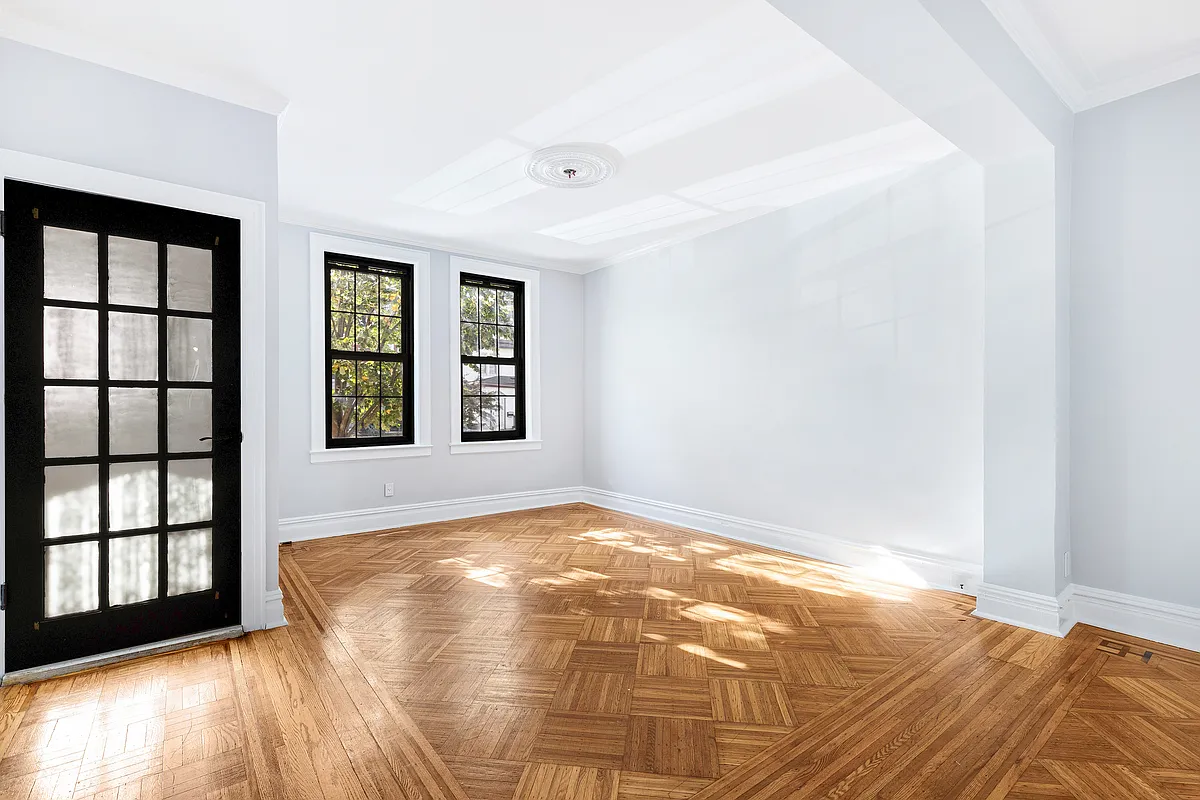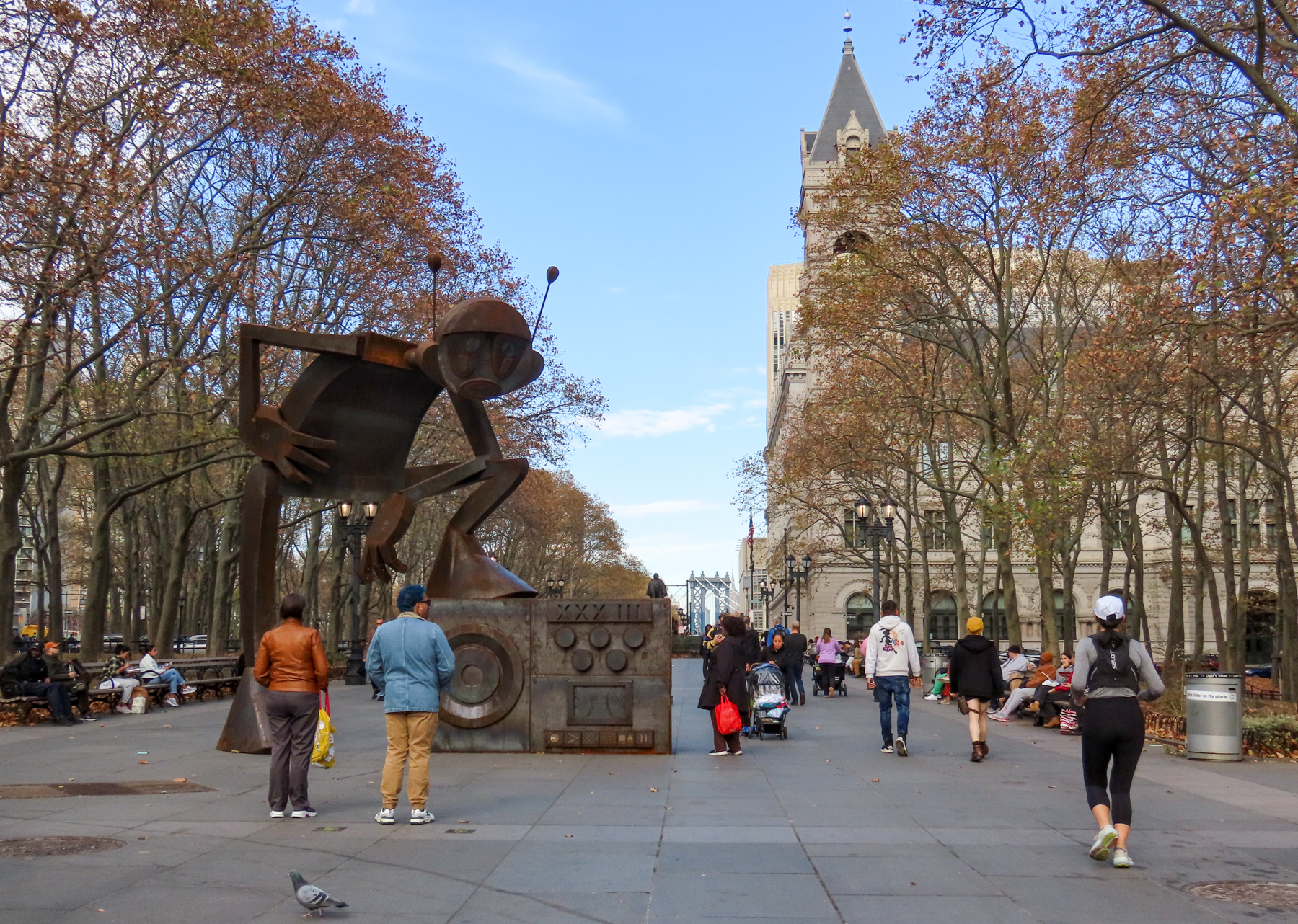New York Makes Deed Theft a Crime, Protects Homeowners From 'Predatory' Sales
Legal reforms prohibit speculators from taking advantage of longtime homeowners by forcing what is known as partition sales.

Phillipa and Ayisha Doyle of Bed Stuy have been fighting in court to keep their longtime family home. Photo by Anna Bradley-Smith
Brooklyn homeowners now have significant new protections against predatory schemes on their property. Updates to existing laws enacted last week make deed theft a crime and bar LLCs from forcing sales of longtime family homes.
The goal of the changes is “preserving intergenerational wealth, preserving communities, very much with a racial equity focus,” general counsel for The Center for NYC Neighborhoods Scott Kohanowski, who helped write the legislation, told Brownstoner.
Real estate speculators and fraudsters have been targeting properties such as brownstones belonging to longtime owners, often seniors, in rapidly gentrifying Black and brown neighborhoods in Brooklyn and other areas of New York City. Even when fraud is suspected, the burden of proof – and the cost of litigation – can fall to the longtime owners, who may lack the financial resources to defend themselves in court and who risk losing their homes and financial assets and becoming homeless even if they did nothing wrong.

The reforms aim to balance the playing field for longtime homeowners and disincentivize investors from preying on heirs’ properties and causing the loss of general wealth, Kohanowski said. “The primary targets of these practices are homes in historically Black neighborhoods, and that’s because of racially discriminatory laws, because of redlining practices,” he added. Updates to the laws were wrapped up in the governor’s budget bill and went into effect Friday, July 19.
A change to the Uniform Partition of Heirs Property Act aims to stop a growing practice known as partition sales that has been described as “predatory” by some observers. Real estate speculators buy shares from heirs of a property and then through court action force the other heirs (often including longtime residents) to sell. Now investors can no longer force partition sales, and only heirs themselves will be able to start what is known as partition actions.
The law change also gives heirs the right of first refusal to buy shares from any other heir wanting to sell, meaning if an investor approaches a part owner (heir) of a property, that part owner must consult all the other heirs to see if they want to buy the share first.
Kohanowski was one of the lawyers who modified the Uniform Partition of Heirs Property Act in 2019 (along with the law’s initial architect, Thomas Mitchell) to address the trend he identified in New York City of investors preying on predominantly Black homeowners who had few resources to challenge partition cases. He also recommended the reforms that resulted in these recently enacted changes.
With the update, investors can continue to buy and hold shares in a property from an heir, but can do little with those shares. If the other heirs decided to sell the property, they would have to negotiate with the investor, but alone the investor cannot force a sale.

Also now when an investor is purchasing a share from an heir, the law requires that heir to alert all the other heirs to the property and give them the option to buy the share first at the same rate offered to the investor, called right of first refusal. Before the July 19 update, investors could buy shares in a property without alerting any other property owners and without having to produce proof of the amount they paid for the share.
If the remaining heirs want to buy the share, but don’t have the funds on hand or can’t get a loan, The Center for NYC Neighborhoods’ subsidiary, Sustainable Neighborhoods, will offer lending programs that are affordable to low- and moderate-income homeowners, Kohanowski said.
The program for low-income owners will follow a plan the nonprofit lender currently uses for senior homeowners, whereby it lends money needed to stabilize homeownership and does not require immediate repayments. Instead, the loan sits on the property as a lien and is repaid to the organization when the property is sold or the homeowner dies.
The second program will be low-cost loans for moderate-income homeowners who can afford to make monthly repayments but don’t qualify for loans. The loans will help them build credit and work towards accessing a traditional mortgage while maintaining ownership of their property, Kohanowski said.
The right of first refusal with share purchasing, and the prohibition of investors launching partition sales are not retroactive, meaning actions that started prior to July 19 will follow the previous iteration of the law. Kohanowski said The Center for NYC Neighborhoods and his previous employer, the NYC Bar Association, had put a lot of work into educating the courts on the 2019 law and what it required, and would continue to do so with the updates.
While it’s currently unclear exactly how many partition cases are working their way through New York City’s court system, Kohanowski said his team is working on a research project that will count the number of partition cases filed since the 2019 law passed. The research will look at where the properties are located, how much they are worth, and the investors behind the actions, among other factors.

He added that while the total number of cases isn’t yet known, the New York City Sheriff’s Office is very aware of the predatory partition actions, and said the attorney general and governor deserve praise in getting these recent reforms enacted.
The recent law changes also included making deed theft a crime and expanding the attorney general’s power to prosecute it. The updated legislation makes “deed theft a form of grand larceny, extends the statute of limitations to allow for more time to identify and investigate cases,” and gives the state attorney general’s office the “jurisdiction to prosecute deed theft crimes alongside district attorneys statewide,” according to a press release from New York Attorney General Letitia James.
“Deed theft is a merciless crime that robs New Yorkers of their homes, communities, and financial stability,” James continued. “By making deed theft the crime we know it to be, this law gives my office and district attorneys more power to stop these scammers from taking advantage of hardworking people.”
At a recent deed theft information session at Restoration Plaza in Bed Stuy, James told a packed crowd that “deed theft is a particularly heinous crime, and a crime that steals individuals’ homes without their knowledge.” Between 2014 and 2023, the New York City Sheriff’s Office had received 3,500 complaints of deed theft, with more than 1,500 in Brooklyn, she said.
For homeowners struggling to maintain ownership of their properties, the Attorney General’s Homeowner Protection Program provides a network of housing counselors and legal services who can give free housing counseling and legal assistance statewide. Homeowners can also contact the state attorney general’s office or call 311 to be connected with legal assistance.
Related Stories
- Court Allows Partition Sale of Bed Stuy Home in Family for 75 Years
- Deed Fraud Questions Arise in Case of Woman Fighting for East New York Home
- Man Who Forged Power of Attorney to Steal Bushwick House Gets 10 Years in Prison
Email tips@brownstoner.com with further comments, questions or tips. Follow Brownstoner on Twitter and Instagram, and like us on Facebook.









What's Your Take? Leave a Comment